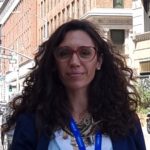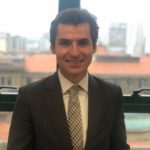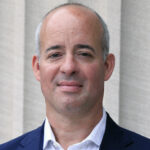30 October
Section 230 of CDA and US Supreme Court case law on free speech
Hosted by the Escola Paulista da Magistratura (São Paulo School of Judges)
in cooperation with Columbia Global Freedom of Expression
REGISTER HERE* (see instructions below)
The event will be in English and Portuguese with simultaneous interpretation.
Due to the massive use of the internet as a vehicle for the exercise of freedom of expression, resulting in a large number of judicial processes on it in Brazil, and the actual difficulty in implementing effective protection of freedom of expression and at the same time guaranteeing safeguard to other rights, that have the same level of constitutional and legal protection, the course objective is to study the current academic and judicial trends on the mentioned subject, nationally and internationally, to assist legal operators in the task of solving the practical problems that have emerged.
Senior Counsel at the Knight First Amendment at Columbia University Scott Wilkens and Director at the Center for Studies on Freedom of Expression and Access to Information at Universidad de Palermo Agustina Del Campo will discuss Section 230 of CDA and the main legal questions raised in, and impact of, a series of cases before the U.S. Supreme court which revolve around intermediary liability, and if and how the government may regulate social media platforms.
In the first set of cases, Twitter v. Taamneh and Gonzalez v. Google, the U.S. Supreme Court ruled in favor of the major platforms, finding they could not be held liable for supporting terrorism after failing to remove terrorist related content.
However, there are two additional cases pending before the Supreme Court, Netchoice v. Paxton and NetChoice v. Attorney General, State of Florida/Moody v. Netchoice, which could fundamentally alter social media and online spaces as they currently operate, not only in the United States but internationally. At issue in both cases are controversial provisions which impose transparency requirements relating to moderation decisions and would require platforms to allow certain types of speech. In deciding those cases the Supreme Court will consider the role of platforms today, and whether private companies have the authority to moderate their content, or whether they have become so powerful that they constitute a public forum which must remain open to all voices.
Moderator:
- Dr. Fernando Biolcati, São Paulo School of Judges
Speakers:
- Des. José Maria Câmara Júnior, São Paulo School of Judges
- Dr. Hawley Johnson, Global Freedom of Expression, Columbia University
- Scott Wilkens, Knight First Amendment, Columbia University
- Agustina Del Campo, Center for Studies on Freedom of Expression and Access to Information, Universidad de Palermo
This webinar was made possible with support of UNESCO Multi-Donor Programme on Freedom of Expression and Safety of Journalists (MDP)
*To register for the event, you need to Log in (Realizar Login). Once on the Login page, if you do not have an account on the platform, click on Subscribe now (Inscreva-se agora). Enter your email address, type in your verification code, and press on Verify code (Verificar código). Create (Criar) your account. In the upper right corner under Enrollment (Inscrição), choose Distance (Distância), click Sign up (Inscrever-se), and then press Register (Realizar Inscrição). Fill out the New Profile (Novo Perfil) form to finalize your registration.
Dr. Fernando Biolcati, São Paulo School of Judges
Fernando Henrique De Oliveira Biolcati holds a Master’s degree and PhD in Civil Law from the Faculty of Law of the University of São Paulo (USP). His dissertation was a study on fake news, freedom of expression and civil liability of social networks. He is a Judge of Law of the Court of Justice of São Paulo (TJSP, Brazil) and has experience in the area of Law, with emphasis on Civil Law.
 Des. José Maria Câmara Júnior, São Paulo School of Judges
Des. José Maria Câmara Júnior, São Paulo School of Judges
José Maria Câmara Junior is a Judge of the Court of Justice of the State of São Paulo and Director of the São Paulo School of Judges. He holds Bachelor’s (1984), Master’s (2001), and Doctorate (2015) degrees in Law from the Pontifical Catholic University of São Paulo (PUC-SP). José Maria Câmara Junior also teaches undergraduate and postgraduate courses at PUC-SP.
 Dr. Hawley Johnson, Global Freedom of Expression, Columbia University
Dr. Hawley Johnson, Global Freedom of Expression, Columbia University
Dr. Hawley Johnson is the Associate Director of Columbia Global Freedom of Expression. Since 2014 she has managed the development of the Case Law Database which hosts analyses of seminal freedom of expression court rulings from more than 130 countries. Hawley has over twelve years of experience in international media development both academically and professionally, with a focus on Eastern Europe. From 2013-2014 she worked with the award-winning Organized Crime and Corruption Reporting Project to launch the Investigative Dashboard (ID), a joint effort with Google Ideas offering specialized databases and research tools for journalists in emerging democracies. Previously, as the Associate Director of the Media and Conflict Resolution Program at New York University, she oversaw the implementation of over eight US government sponsored media development programs in eleven countries. In 2012, she completed her Ph.D. in Communications at Columbia University’s Graduate School of Journalism. Her dissertation – a study of the evolution of media development policies in Bosnia-Herzegovina, Kosovo and Macedonia – was grounded in extensive field research in the region. She has a M.A. from Columbia University’s School of International and Public Affairs and a B.A. in International Affairs from the School of International Service at American University.
Scott Wilkens, Knight First Amendment, Columbia University
 Agustina Del Campo, Center for Studies on Freedom of Expression and Access to Information, Universidad de Palermo
Agustina Del Campo, Center for Studies on Freedom of Expression and Access to Information, Universidad de Palermo
Agustina Del Campo, LL.M., Esq. is the Director at the Center for Studies on Freedom of Expression and Access to Information (CELE) at Universidad de Palermo and an international human rights consultant. Ms. Del Campo has a law degree from Universidad Catolica Argentina and an LL.M. in International Legal Studies from American University Washington College of Law. She previously ran the Impact Litigation Project at AU WCL where she coordinated the research and litigation of several freedom of expression cases before the Inter-American Commission and Court on Human Rights. Agustina has extensive experience in human rights training, particularly as it relates to freedom of expression and the press in the Inter-American human rights system. She taught and lectured in several Latin American countries and the U.S. Additionally, Agustina has authored and/or contributed to over a dozen publications.



